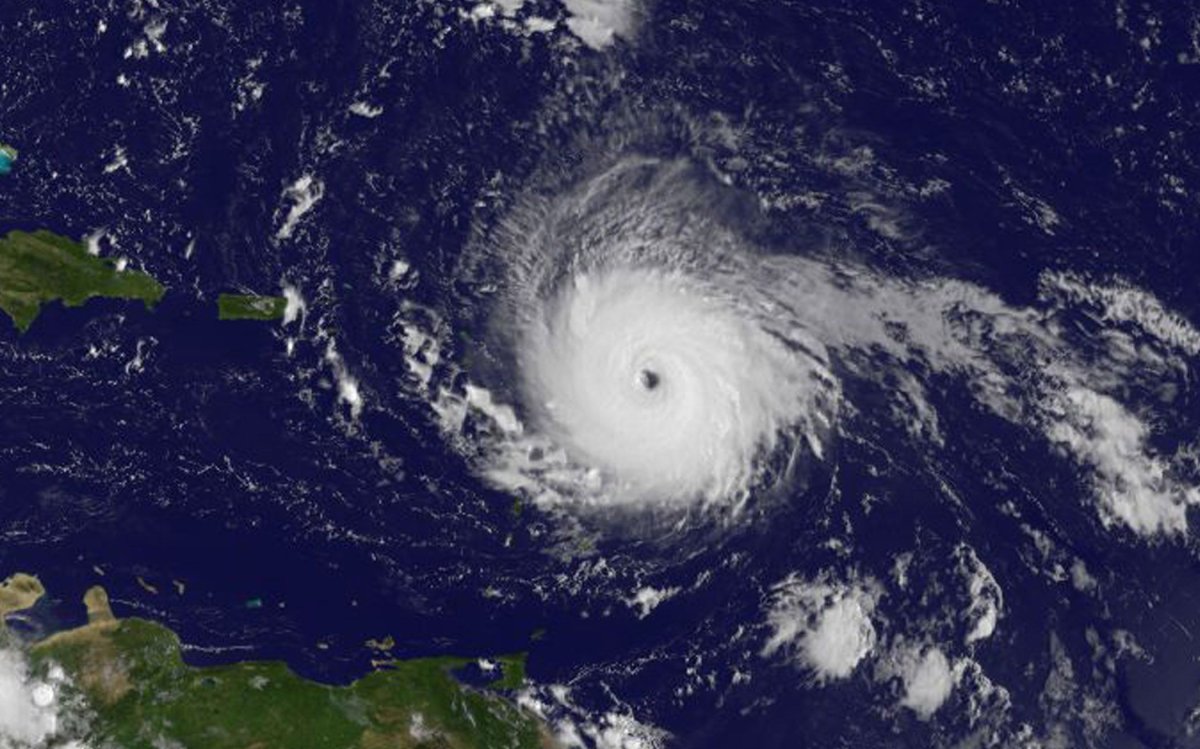Despite what President Trump and his appointees say, the scientific evidence keeps pouring in that climate change is real, is really caused by humans, and will cause real impacts on our lives. There's even evidence suggesting that many of the tiny proportion of studies that do undermine climate change research are deeply flawed.
And now, in less than two weeks, we've seen first Hurricane Harvey's record-breaking rainfall and now Hurricane Irma's fast progression to the most severe storm designation, Category 5. We know climate change means more weather, so why aren't these huge storms convincing skeptics that climate change is real?
Unfortunately, it's not that easy to draw a line from climate change to an individual storm. Climate scientists and meteorologists both deal in probabilities, and it's much different to say that large storms will become more likely than to say that one particular storm developed the way it did because of climate change.

Scientists always struggle to talk about particularly severe natural disasters because they are by definition rare—and the smaller the data set, the more likely it is that what you think is a real signal is actually just a fluke.
So the way scientists, like Michael Mann at Pennsylvania State University in this Facebook post, typically tackle the connection between climate change and hurricanes is to say that climate change doesn't cause individual storms, but it can make them stronger than they would have been otherwise.
What can we say about the role of climate change in the unprecedented disaster that is unfolding in Houston with...
Posted by Michael E. Mann on Sunday, August 27, 2017
The connection between climate change and hurricanes is logical enough: Hurricanes feed off warm water, and climate change will make the areas where hurricanes feed hotter. Warmer air can hold more water vapor, making it easier for a storm like Harvey to dump more rain.
Another key factor that makes hurricanes dangerous is storm surge, the huge flood of seawater a storm pushes in front of it as it approaches land. Here, too, there's a logical connection: Climate change causes rising sea levels, so it takes less storm surge to cause the same amount of flooding.
How other hurricane factors are affected by climate is still unclear. Some scientists think Sandy's unusual trek over the East Coast might have been influenced by climate change, but that's precisely the sort of hypothesis that's difficult to test with a rare phenomenon.
Another problem with attributing particularly bad natural disasters to climate change is that in many cases, how an event plays out on the ground is shaped not just by the storm. The flooding Harvey caused was partially a reflection of the storm itself, but was exacerbated by Houston's lack of drainage regulation. That's just as human-caused as climate change, but a different problem.
Uncommon Knowledge
Newsweek is committed to challenging conventional wisdom and finding connections in the search for common ground.
Newsweek is committed to challenging conventional wisdom and finding connections in the search for common ground.
About the writer
Meghan Bartels is a science journalist based in New York City who covers the science happening on the surface of ... Read more
To read how Newsweek uses AI as a newsroom tool, Click here.








